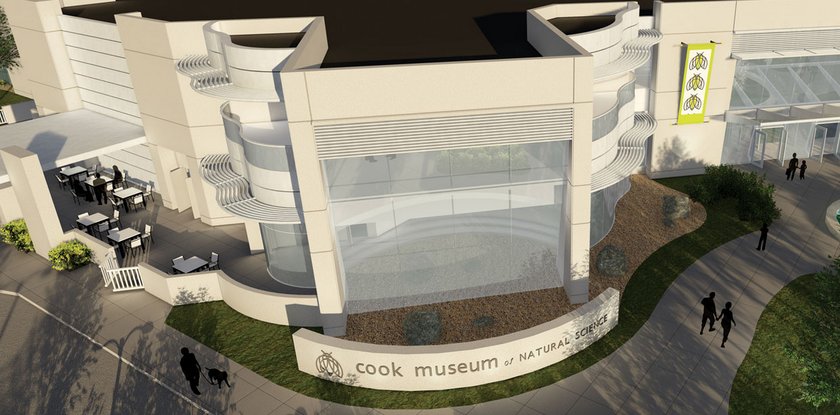[tps_header][/tps_header]
[tps_title][/tps_title]

DECATUR, Ala. — Alabama-based Cook’s Pest Control has long maintained a natural science museum in their home city of Decatur, but last Thursday the bug beaters broke ground on a new non-profit natural science museum more than ten times the size of its former location.
The 57,000 square foot multi-level Cook Museum of Natural Science is slated to open in early 2017. The museum’s developers are certain the 100-person capacity theater, several permanent exhibits, a gift shop, classrooms, and cafe will bring thousands of tourists to the area, bolstering the city’s downtown revitalization.
“It’s hard to measure just in terms of economic dollars, but in terms of raising the psyche of the people in our community and believing that they can have these things and do these things if we only work together, that to me is the real benefit we’re going to see out of this,” said Decatur director of economic and community development Wally Terry.
The $17 million project is expected to bring in hundreds of thousands of visitors in its first year alone; a massive new influx of visitors that Cook’s Pest Control Chief Administration Officer Brian Cook says could be “tremendous” for the area.
“The market research said 58 percent of our 214,000 projected visitors within our first year would be during the week, and then you’ll have 21 percent on Saturday and 21 percent on Sunday,” Cook said. “So you’re looking at 2,000 people downtown on a weekend. I think it’ll have a significant impact on the retail, restaurants and just the attitude of others to invest in the local community especially.”
According to a story by AL.com, the museums permanent exhibits will include rivers and streams, caves, mountains and conifers, arctic tundra, deserts, oceans, bayous, hardwood forests, insects, the solar system, live animals, aquariums, rock collections and more. Additional space is planned for traveling, temporary exhibits.
The old Cook museum in downtown Decatur already draws thousands of children on field trips, as well as amateur entomologists from across the Southeast. First established as an employee training facility in the 1960s, the old museum is only 5,000 square feet of preserved insects, birds, mammals, rocks, and seashells.
Check out pictures of the groundbreaking for the new Cook Natural Science Museum in the slideshow above.
Like this article? Hate it? Follow me and let me know how you feel on Twitter!
— Elizabeth BeShears (@LizEBeesh) January 21, 2015












